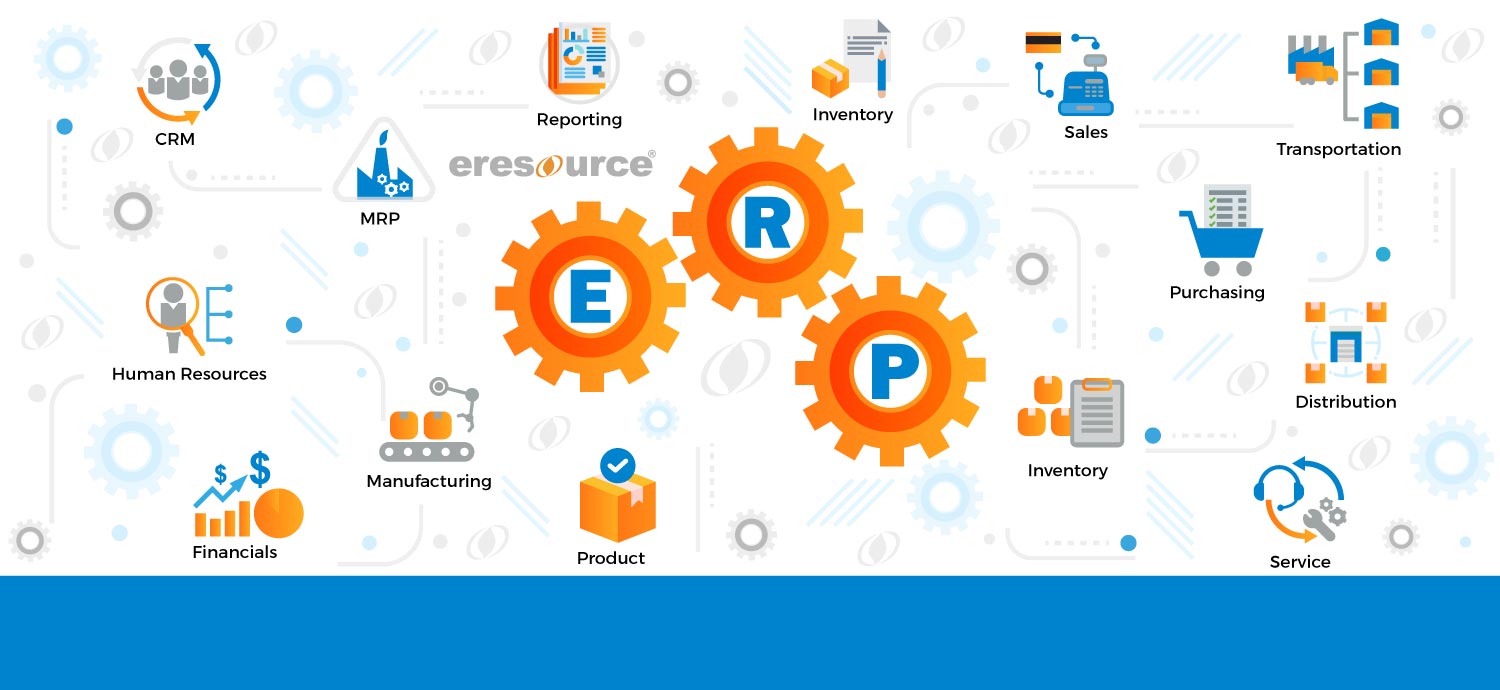A conventional ERP is created with a one-size-fits-all approach and may be missing some essential capabilities for a corporation that specialises in manufacturing. eresource Xcel ERP offers services like ERP for Manufacturing. The system provides broader and more sophisticated capabilities to satisfy industry-specific needs and automate critical manufacturing operations. Manufacturing-specific ERP can help businesses of all sizes and provide a quicker return on investment than deploying a general ERP.
What are the fundamental features of a manufacturing ERP system?
With many ERP systems on the market, choosing the one that best suits your company’s needs can take time and effort. There are much different manufacturing ERP on the market right now. So, how do you choose the best-fitting ERP from among those? What essential functions must an ERP include for manufacturing companies? Here is a thorough list of attributes that Eresource ERP offers services like ERP for Manufacturing offers to manufacturers:
Product Lifecycle Administration
ERP for manufacturers must include clearly defined supply chain planning features to enable manufacturing businesses to oversee and control every stage of a product’s lifespan, from concept through production and distribution. This will aid in enhancing product quality, cutting costs, maximising quality, reducing resource waste, and more.
Supply Chain Administration
Manufacturing relies heavily on managing the supply chain for resource inflow and outflow. It facilitates efficient communication among manufacturers, suppliers, and customers. Manufacturers can aggregate the total demand using an ERP supply chain management system and plan the production and supplies needed to meet the demand. Turning more toward customer demand enables enterprises to enhance their manufacturing operations by consolidating information from sales, production, inventory, and purchasing.
Purchase management, order fulfilment, inventory control, etc., are all examples of supply chain management features in an ERP. With the help of this function, manufacturers may manage orders, manage their inventories, employ barcode technology, manage their BOMs, and help users forecast their future material needs.
Also Read – ERP for Automotive Industry
Asset Management
One essential thing to look for in ERP software for manufacturing is that whether it can manage your assets effectively. The portfolio management system should be able to handle capital projects and fixed assets, as well as track and reduce energy usage and manage items over their entire life spans. eresource Xcel ERP system for manufacturing takes care of all these above matters effectively.
Project Administration
The project management function helps manufacturing companies keep track of their daily operations throughout the manufacturing process. The agile method and Gantt charts are the two most common project management techniques that most manufacturing ERP systems use.
Also Read – ERP for Steel Industry
Quality Control
One of the most crucial demands of the manufacturing sector is maintaining product quality, particularly in light of the intense competition. An efficient manufacturing ERP notifies management when quality criteria are not met and creates and maintains quality standards throughout the production process.
Accounting for manufacturing and finances
Regulating the accounting that supports your production processes should be one of your top priorities as a business. Basic systems always incorporate billing and invoicing. To help your company better grasp future requirements, ERP software for manufacturing must have budgeting and forecasting capabilities. Accounting and finance management software complement one another and help to increase operational visibility.
Sort of Deployment
Compared to on-premise alternatives, cloud-based ERP systems offer improved mobility and security capabilities, scalability, and low setup costs. The majority of manufacturing ERPs offer both cloud-based and on-premises deployment options. Compared to on-premise alternatives, cloud-based ERP systems offer improved mobility and security capabilities, flexibility, and low setup costs. A cloud ERP enables businesses to use cutting-edge mobile ERP technology.
Also Read – ERP Software for Construction
Conclusion
Manufacturing companies may manage all of their crucial components, from shop floor operations to supplier chains and inventory management, by employing an ERP. ERP systems improve a manufacturing company’s organisational effectiveness by monitoring and optimising corporate resources. Producers may more easily deliver goods on time with precise production planning, enhanced inventory control, and synchronisation across various distribution routes. A real-time ERP system gives decision-makers an accurate view of their activities at any time.
Even though the mentioned features only make up a small percentage of what industrial ERP software may be able to offer, companies who want to acquire or update their current ERP solutions should give these features some thought. To learn more about manufacturing ERPs, don’t hesitate to contact us.
Also Read – Discrete Manufacturing ERP
Categories
Register for Free Demo!
Recent Post
-

eresource ERP 360 - an
11th Apr 2019 -

A competitive ERP system for
17th Apr 2019 -

Auto components manufacturing industry has
17th Apr 2019 -

Make the best use of
17th Apr 2019







